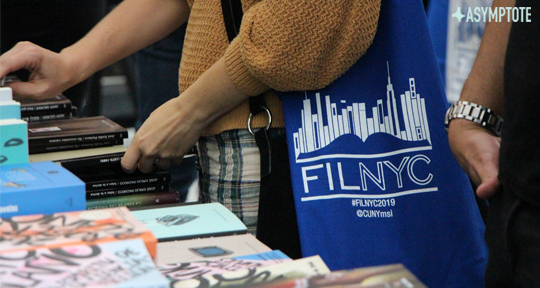Last week saw the end of Hispanic Heritage Month in the US, a period meant to celebrate the Latino population through a series of countrywide cultural events. New York was, predictably, a hub of activity, and its Feria Internacional del Libro a clear highlight: held virtually in early October, it brought together Hispanic/Latino authors, editors, and critics for talks on craft, industry, and politics. Across several panels, one question seemed to loom large: what do we even mean when we use terms like “Hispanic,” “Latino,” or the more recent “Latinx”? In this brief hybrid piece (half essay, half dispatch), Editor-at-Large Josefina Massot gives us panelists’ take on the issue—and a bit of her own.
I’ve always mistrusted self-touted “movements,” and never more so than now: in the age of the hashtag, most won’t make it past their first bout of virality. My skepticism peaks each time a movement calls itself a “boom”; the lady doth protest too much, I think, and scoff away my irritation. These days, though, I find myself believing in the #NewLatinoBoom. I’m biased, of course: as an Argentine clumping her way through US literary soil, it’s in my interest to believe. Still, the data seem to back me up.
The landscape of Hispanic letters in America has never been lusher: Spanish-speaking writers are earning MFAs, publishing in dozens of magazines and presses, and showcasing their work at a growing number of festivals—key among them, Miami’s, Chicago’s, and (more on this shortly) New York’s. It makes sense: over 60 million Americans identify as Hispanic/Latino, and roughly 40 million are native Spanish speakers; that puts the US roughly on par with top-ranking Colombia, Spain, and Argentina (Mexico comfortably takes the lead).
When I tuned in to the Feria Internacional del Libro de la Ciudad de Nueva York (FILNYC) a couple of weeks ago, I expected my newfound faith to be stoked. I was going to hear from famed author Cristina Rivera Garza, head of the country’s first PhD in Spanish creative writing; reporter Annie Correal would discuss some of her hard-hitting pieces on Latino immigration for The New York Times; author Paola Ramos would tackle her acclaimed essay collection, Finding LatinX; and a series of savvy press reps from across the country would swap industry secrets. READ MORE…

